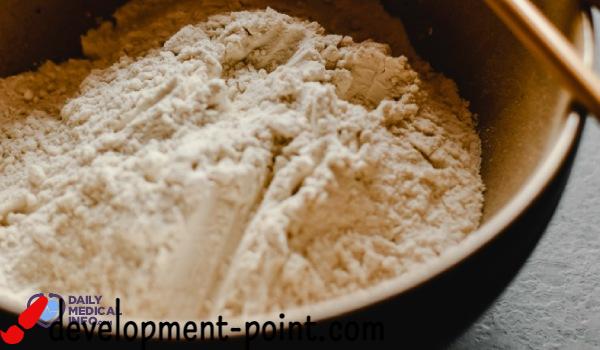Eczema treatment: 7 different ways and tips to reduce its effects
Eczema is one of the most common skin conditions that affect many people, and these sufferers are always looking for ways to treat and alleviate this condition, so we have prepared for you the following article to learn about medical and natural eczema treatment methods, how to deal with irritated eczema, and some tips to get rid of the effects of eczema We care about the body and many other information, so be sure to follow up.
Eczema treatment methods
The treatment methods used in cases of eczema aim to relieve associated symptoms such as skin itching, scaling, redness, and others. The most prominent methods of treating eczema include the following:
1- Medicines
- Eczema ointmentIt contains topical corticosteroids, which are anti-inflammatory medications that help relieve the main symptoms of eczema, such as inflammation and itching. It is applied directly to the skin.
- Oral medicationsIn the event that topical medications are ineffective, the doctor may prescribe oral medications such as systemic corticosteroids and immunosuppressants, and they are available in the form of injections or oral pills.
- AntibioticsAntibiotics are prescribed if eczema occurs with another infection or skin inflammation.
- Topical calcineurin inhibitorsThese medications are used to suppress overactivity of the immune system, helping to reduce inflammation and reduce the chances of eczema flare-ups.
- antihistaminesThis type of medication is used to reduce itching during the night, as it causes drowsiness and helps the patient fall asleep faster.
2- Eczema needle
Some types of medications prescribed to treat eczema and relieve its symptoms include injections, such as injected biologics. These injections are used to block proteins in the immune system and reduce excess immune system responses that can cause symptoms to worsen.
3- Eczema cream
Because of the dryness and itching of the skin, the doctor may prescribe creams and moisturizers during eczema treatment to maintain skin moisture, as creams help reduce inflammation and increase water in the skin, which helps in the healing process.
Products containing glycerin, lactic acid, and urea can help. Vaseline and mineral oils can help maintain the amount of water in the skin and create a thick barrier over the skin.
In the case of using creams that can be obtained without a prescription, hydrocortisone creams can be used, as hydrocortisone helps reduce skin redness, itching and swelling, but it is preferable to use creams recommended by your attending physician.
4- Coal tar
A doctor may prescribe products containing coal tar, as it has been known to be used to treat eczema and its symptoms and to treat other skin problems for many years, and although it can leave a strong trail and smell, it can help soothe the skin.
5- Relaxation techniques
There is a strong relationship between stress and skin health, as studies indicate that a person is more likely to scratch the skin when disturbances in emotions occur, and some studies indicate that the use of relaxation techniques can reduce stress and thus reduce the chances of eczema symptoms appearing. A doctor can be consulted about the best techniques that can be used.
6- Wet covers
When symptoms of eczema appear, soak some gauze, bandages, or a piece of soft clothing in cold water and apply to the skin. The cold helps relieve itching and moisture, and any creams or moisturizers that have been applied can work better. It is preferable to speak with the doctor to find out how to apply this method and how long to use it to prevent any infections.
7- Eczema treatment with home tips
After knowing some of the most prominent methods of treating eczema, there are some home tips that can help relieve symptoms and severity of eczema flare-ups, including the following:
- Take a lukewarm shower.
- Apply a moisturizer 3 minutes after showering to keep the skin hydrated for a longer period of time.
- Moisturizing the skin on a daily basis.
- Wear soft and cotton clothes.
- Avoid wearing rough, tight and thorny clothes.
- Use a humidifier in case the weather is dry and cold.
- Try to avoid rapid changes in air temperature, and activities that can cause sweating.
- Avoid eczema triggers.
- Cut the tips of the nails regularly, to prevent scratches if the skin is scratched.
Eczema treatment with herbs and natural methods
It is important to know that there are no herbs or natural methods that can help treat eczema once and for all, and any available natural solutions are only intended to relieve symptoms. According to the available data, some of the most prominent natural methods used to relieve eczema include the following:
- Aloe vera gel: This gel contains antibacterial and antimicrobial properties and helps boost the immune system and speed up wound healing.
- Apple cider vinegar: This vinegar can help solve some skin problems, but it must be used with caution because it can cause damage to soft tissues.
- Coconut oil: contains beneficial fatty acids that can help moisturize the skin, which can help eczema sufferers.
- Tea tree oil: This oil helps relieve some skin problems, including eczema, as it contains anti-inflammatory and antibacterial properties and helps heal wounds.
Other herbs and natural methods that some studies have suggested may be helpful include:
- turmeric.
- chamomile.
- Oats.
- Evening primrose.
- Vitamin and zinc supplements.
Can eczema be treated with honey?
Honey is a natural antibacterial and anti-inflammatory substance that is used by many people to treat wounds. According to some studies, honey can help boost the immune system, which means increasing the body’s ability to fight infection. Other data indicates that honey is useful in treating many types of infections. Skin problems such as burns and wounds.
Based on this data, and with following the correct instructions, honey can be applied to the affected skin, to moisturize the skin, prevent infection and speed up the healing of wounds, which can result from skin conditions such as eczema.
Notice:
We strongly recommend that you consult a doctor first before using honey or any of the aforementioned natural methods, as there are not many studies that support the safety and effectiveness of these products.
Irritant eczema treatment
Irritant eczema is bouts of eczema that can occur suddenly and severely, or bouts of eczema that are usual but severe. Some tips for relieving these bouts of eczema and treating irritant eczema include:
- Use oral antihistamines and anti-itch creams to help relieve symptoms.
- Use acetaminophen or any other nonsteroidal anti-inflammatory drug to reduce symptoms of burning and inflammation.
- Use moisturizing creams.
- Use natural oils such as coconut oil, sunflower oil, or any topical cream that contains vitamin B12.
- Sitting in warm water to help the body absorb moisture and reduce stress.
- Use unscented shower oils to relieve itching and increase body moisture.
Can eczema be treated permanently?
Eczema is considered a chronic condition, which means that it cannot be treated permanently, but as mentioned earlier, there are several effective ways to relieve symptoms associated with the disease, such as itching and dry skin. There is no known and 100% effective treatment for eczema, and the rash does not go away on its own, so this condition requires ongoing treatment and ongoing care to reduce symptoms.
Treating the effects of eczema
In many cases, it is not possible to completely get rid of these effects, but there are some tips and methods that can make them less noticeable and help hide them. We mention the following:
- Covering traces with makeup, but in case skin irritation does not persist.
- Making the skin more dark by using some moisturizers and creams such as tanning solutions.
- Lighten these effects by using bleaching creams that contain hydroquinone.
- Flatten the raised marks by placing silicone gel strips on the affected area.
- Scar creams, which can sometimes be obtained without a prescription, can be used.
- Laser treatment can be tried, which in some cases can help change the color of scars.
- Consulting a beautician, as there are some cosmetic solutions that can help, but they may be expensive sometimes.

